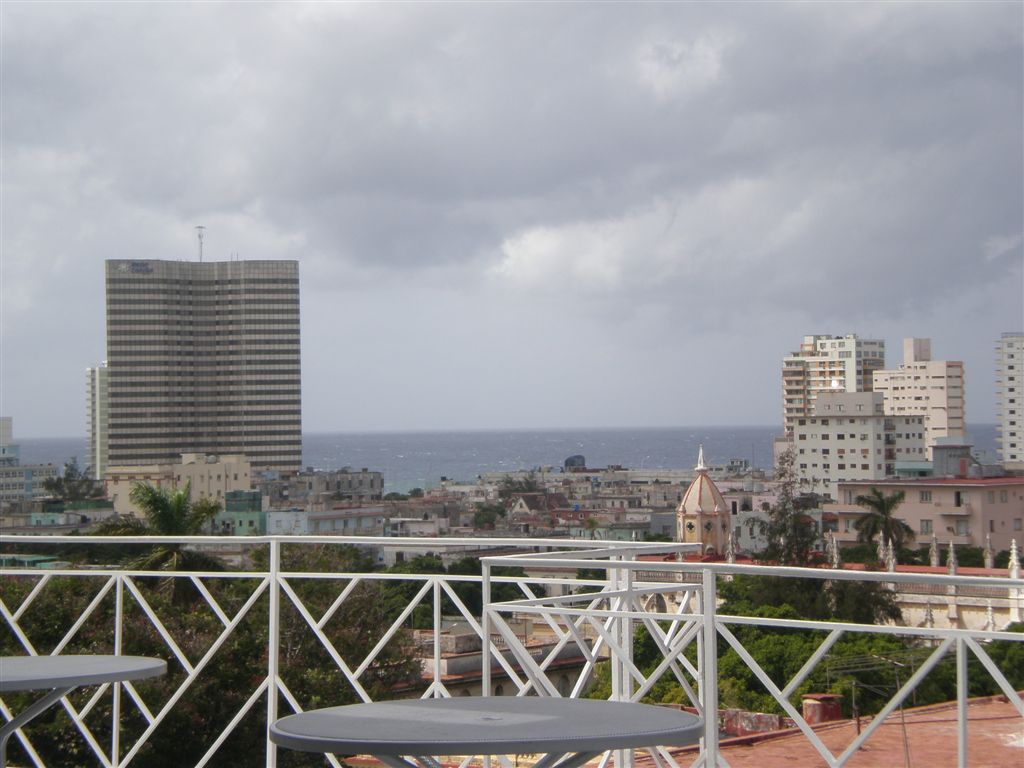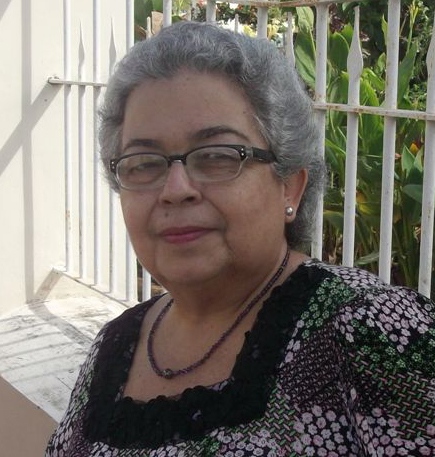Semana de Teatro Alemán en La Habana
Mientras viajábamos mi hijo y yo hacia El Vedado, para participar en la IX Semana de Teatro Alemán en La Habana, comentábamos la extrañeza que confiere a las calles de la ciudad el hecho de que todas las personas lleven mascarillas cubriéndoles boca y nariz, una de las medidas preventivas ante la compleja situación de salud provocada por la pandemia de Covid19.
Muy distintas, por supuesto, a las máscaras que tradicionalmente han simbolizado el teatro, las mascarillas anti-Covid también eran parte del atuendo de los asistentes al panel Aventura y ventura de traducir, en el cual se abordaron diversos aspectos de la traducción de piezas teatrales y el papel del traductor como mediador intercultural. Acudió un numeroso público de intelectuales, teatristas y estudiantes de artes dramáticas y lenguas extranjeras, felices por poder encontrarse después de largos meses de confinamiento, aunque manteniendo una distancia física que resulta difícil para los efusivos cubanos, acostumbrados a saludarnos con besos y abrazos.
Del 6 al 15 de noviembre de este año 2020, como parte de la IX Semana de Teatro Alemán, se realizaron performances y paneles, y fueron llevadas a escena, entre otras piezas, Cómo puedo encontrarte, atraerte hacia mí y convencerte para que te quedes, de Anja Hilling, por el grupo Compañía del Cuartel bajo la dirección de Sahily Moreda, y Wonderland Ave., de Sibylle Berg, por el grupo Teatro El Público bajo la dirección de Carlos Díaz. La versión cubana de esta última incorporó en tono humorístico elementos relacionados con los cuidados de salud necesarios en tiempos de pandemia. Al conversar con Carlos Díaz después de presenciar la puesta, el director teatral me explicaba que las alusiones humorísticas le habían parecido casi imprescindibles, en un ambiente enrarecido por la pandemia, para aligerar un poco el sombrío tema de la pieza de Berg, en la que los humanos se ven esclavizados por la inteligencia artificial.
Hasta hace algunos años, Bertolt Brecht era el referente por excelencia cuando en Cuba se hablaba de teatro alemán, pues varias piezas suyas fueron llevadas exitosamente a las tablas por el grupo Teatro Estudio a partir de 1959. Pero al poner en primer plano a autores contemporáneos, de los que algunos son exponentes del teatro más experimental en sus países, las Semanas de Teatro Alemán inauguraron entre nosotros una nueva visión del quehacer teatral en lengua alemana, y varios de nuestros jóvenes autores dramáticos reconocen la influencia que sobre ellos ha ejercido ese acercamiento al teatro alemán.
En el contexto de las Semanas de Teatro Alemán han visitado La Habana autoras y autores como Dea Loher, Philip Löhle, Darja Stocker y Rebekka Kricheldorf, quienes han compartido sus experiencias con el público cubano. Parte de las actividades de estas semanas se desarrollan habitualmente en la sede de la Fundación Ludwig de Cuba, desde cuya terraza se disfruta una hermosa vista que he tratado de captar en la foto. El estado del tiempo –a la espera de un frente frío– favoreció los tonos grises en el cielo, no habituales en estas latitudes.
Deutsche Theaterwoche in Havanna
Unterwegs mit meinem Sohn nach El Vedado, wo wir an der Neunten Woche des deutschsprachigen Theaters in Havanna teilnahmen, fiel uns auf, wie eigentümlich die Straßen wirkten, voller Menschen, die Masken trugen, die Mund und Nase bedeckten, eine Präventionsmaßnahme angesichts der komplexen Situation wegen der Covid 19-Pandemie.
Ganz anders natürlich als Masken, wie sie sonst traditionell im Theater verwendet werden, waren damals Covid-Schutzmasken Teil der Ausstattung der Teilnehmer des Panels Aventura y ventura de traducir, „Vom Abenteuer und Risiko des Übersetzens“, bei dem es um verschiedene Aspekte der Übersetzung von Theaterstücken ging und um die Rolle des Übersetzers als interkultureller Mittler. Die Veranstaltung ist gut besucht von Intellektuellen, Theaterleuten, Schauspiel- und Fremdsprachenstudenten, die nach langen Monaten des Eingesperrtseins froh sind über so ein Treffen, auch wenn man auf Abstand bleiben muss, was uns lebhaften Kubanern schwerfällt, denn wir sind gewohnt, uns zur Begrüßung gegenseitig um den Hals zu fallen und Küsschen zu geben.
Vom 6. bis 15. November 2020 wurden im Rahmen der Neunten Woche des deutschsprachigen Theaters Performances und Podiumsdiskussionen geboten und Stücke wie »Wie kann ich dich finden, zu mir ziehen und überreden zu bleiben« von Anja Hilling, gespielt von der Compañía del Cuartel unter der Leitung von Sahily Moreda, ebenso »Wonderland Ave.« von Sibylle Berg, gespielt von der Gruppe Teatro El Público unter der Leitung von Carlos Díaz. Die kubanische Version des letztgenannten Stücks brachte auf humorvolle Weise Anspielungen auf das Achten auf die Gesundheit in Zeiten der Pandemie. Nach der Aufführung erklärte mir Carlos Díaz in einem Gespräch, es sei in einer aufgrund der Pandemie so eigenartig anmutenden Zeit einfach nötig gewesen dem Stück von Berg, in dem Menschen zu Sklaven der künstlichen Intelligenz werden, durch humorige Anspielungen ein wenig das Düstere zu nehmen.
Bis vor wenigen Jahren war Bertolt Brecht stets der Name, der für das deutsche Theater stand, denn ab 1959 waren mehrere seiner Stücke von der Gruppe Teatro Estudio aufgeführt worden und feierten Erfolge. Seit aber zeitgenössische Theaterschaffende, darunter Vertreter der Avantgarde des experimentellen Theaters ihrer jeweiligen Länder, im Vordergrund stehen, bringt die Woche des deutschsprachigen Theaters uns einen ganz neuen Eindruck von der Bühnenkunst im deutschsprachigen Raum nahe und einige unserer jüngeren Theaterautoren bekennen sich zu dem Einfluss, den das Erleben des deutschsprachigen Theaters auf sie ausübt.
Zur Woche des deutschsprachigen Theaters sind schon Autorinnen und Autoren wie Dea Loher, Philip Löhle, Darja Stocker und Rebekka Kricheldorf nach Havanna gekommen und haben ihre Erfahrungen mit dem kubanischen Publikum geteilt. Die Veranstaltungen, die in dieser Woche geboten werden, finden meist im Sitz der Ludwig Stiftung in Kuba statt, wo es eine Dachterrasse gibt, von der aus man eine wunderbare Aussicht hat, die ich auf dem Foto versucht habe festzuhalten. Wetterbedingt – eine Kaltfront war im Anzug – überwiegen Grautöne, was sonst in diesen Breiten ungewöhnlich ist.
Übersetzung: Lea Hübner
German Theater Week in Havana
As my son and I were on our way to the Vedado neighborhood to attend the 9th German Theater Week in Havana, we talked about the odd feeling we got while walking through the streets and seeing people wearing a mask to cover their mouth and nose―a preventive measure before the complex health scenario caused by the COVID-19 pandemic.
By the way, these masks are very different from those traditionally worn in theater. Masks were also part of the attire when I attended a panel called The Adventure and Fortune of Translating, where the topic of discussion was theater translation and the role of translators as an intercultural mediator. The event attracted a large crowd of intellectuals, theater people, and students of the performing arts and foreign languages, who were happy to congregate after so many months of isolation, even though we still had to social distance―something hard for Cubans to do, since we’re used to hugging and kissing when we greet each other.
As part of the 9th German Theater Week, which took place November 6-15, 2020, several performances and panels took the stage, including the play How can I find you, have you move in with me and be persuaded to stay, written by Anja Hilling, staged by Compañía del Cuartel, and directed by Sahily Moreda, and Wonderland Ave., written by Sibylle Berg, staged by Teatro El Público, and directed by Carlos Díaz. The Cuban version of the latter play added some humor to the story while exploring healthcare elements related to these pandemic times. Talking to theater director Carlos Díaz after the play, he told me that this touch of humor seemed crucial and inevitable to him due to the strange times we’re living in, because it would help ease the tension surrounding Berg’s bleak play, since it depicts humans being enslaved by artificial intelligence.
A few years ago, Bertolt Brecht was the benchmark of excellence whenever we talked about German Theater in Cuba, and several of his plays have been successfully staged by Teatro Estudio since 1959. However, now that contemporary authors came to the foreground, and some of them are very representative of experimental theater in their country of origin, every German Theater Week edition has brought a fresh perspective about theatrical trends in German language. Many of our own young playwrights have since recognized the influence that German Theater has had on them.
During German Theater Weeks, Habana has welcomed playwrights like Dea Loher, Philip Löhle, Darja Stocker, and Rebekka Kricheldorf, who shared their experiences with Cuban audiences. Some of the activities planned for each event usually take place at the Ludwig Foundation of Cuba, where the terrace provides us with the beautiful view I tried to capture in this picture. Since there was a cold front approaching, that day the weather painted the sky in shades of gray, which is not very typical of our region.
Translation: Rafa Lombardino
Share












